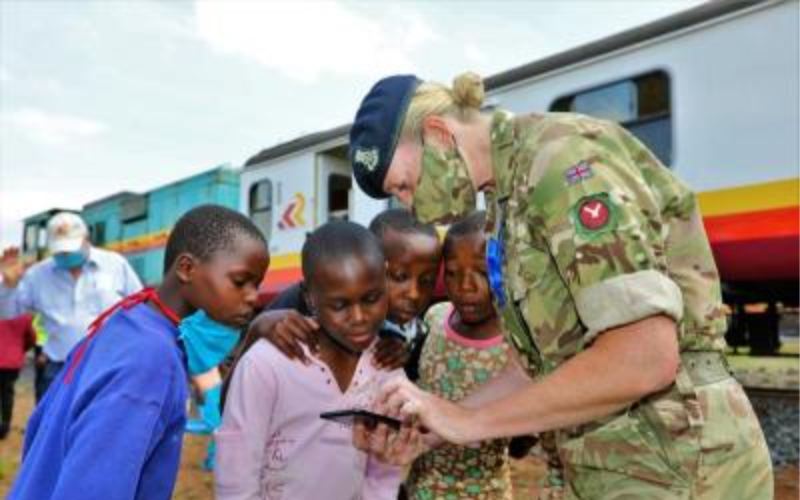×
The Standard e-Paper
Home To Bold Columnists

British Army Major Jules Ward shows children their photos before the start of the Kenya Railways Kiganjo - Sagana train test run, July 3, 2020. [Mose Sammy, Standard]
The recent revelations about the killing of Agnes Wanjiru, a 21-year-old mother of one, allegedly by a UK military soldier has elicited anger and a string of unanswered questions among Kenyans.







